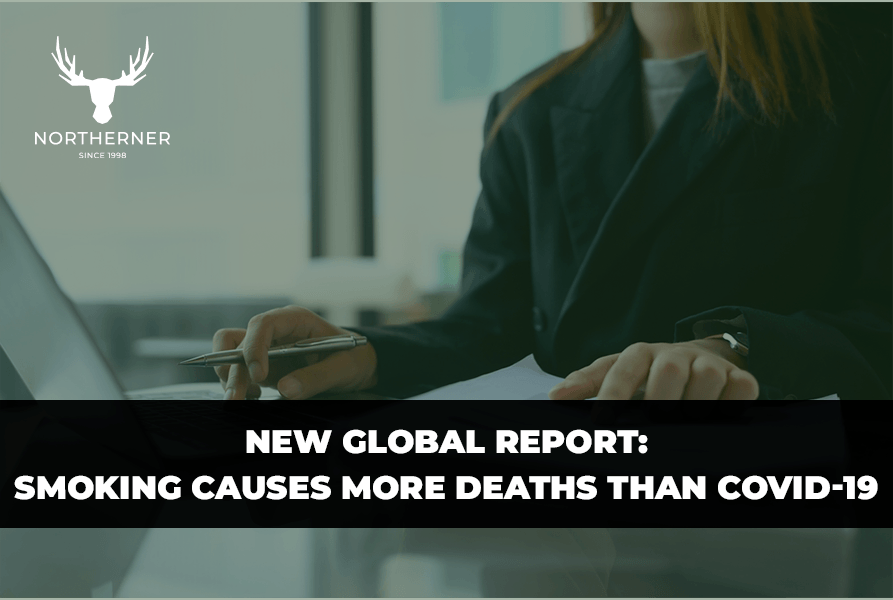New Global Report: Smoking Causes More Deaths Than Covid-19 – Every Year!
The latest report from The Global State of Tobacco Harm Reduction 2024 highlights the global smoking epidemic, which claims over 8.9 million lives annually. Described as an urgent public health challenge, smoking remains a leading cause of non-communicable diseases (NCD), particularly in low- and middle-income countries.
Despite decades of tobacco control policies, smoking continues to pose a severe health threat. The report emphasises the importance of Tobacco Harm Reduction (THR) as a key strategy to save lives and mitigate smoking-related harm.
“The report highlights something most politicians and authorities seem to ignore—that prohibition doesn’t work,” says Markus Lindblad, Head of Communications at Northerner.
What Is Tobacco Harm Reduction?
Tobacco Harm Reduction—or harm minimisation—refers to providing safer alternatives for nicotine consumption to reduce the health risks associated with cigarettes and other combustible tobacco. Safer Nicotine Products (SNP)—such as vapes, snus, nicotine pouches, and heated tobacco products—are designed to significantly lower the toxic effects of smoking. These non-combustible products are considered up to 95% less harmful than traditional cigarettes.
“It clearly works,” Lindblad asserts. “Just look at Sweden, with its long tradition of snus and nicotine pouches, where smoking rates have dropped to just over 5%, compared to the European average of 25%.”
Vaping Proven Effective for Smoking Cessation
A Global Challenge
Despite these successes, tobacco harm reduction faces significant barriers. Regulations vary widely between countries, and some governments ban SNPs despite their potential health benefits. Additionally, the illicit market for nicotine products poses a substantial challenge, undermining safety standards.
“We’re seeing more governments banning flavoured products—Spain is the latest to propose such a move,” Lindblad points out. “The more countries that follow this path, the greater the risk of widespread prohibitions in the future. That could have devastating consequences for public health. Bans don’t stop people from using what they want; they only fuel the black market.”

